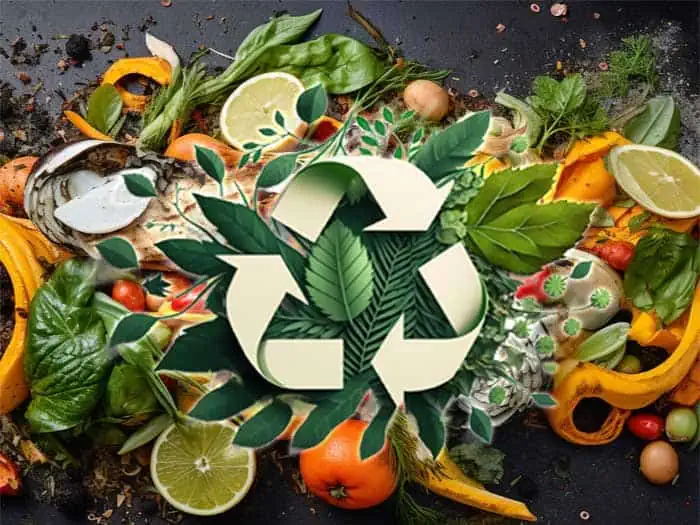


Join SCS Engineers at the 2025 Wisconsin Integrated Resource Management Conference (WIRMC) on February 26-28, 2025, at the Chula Vista Resort in Wisconsin Dells, Wisconsin.
SCS Engineers will be presenting on a range of topics, offering expertise and fresh perspectives to help shape the future of integrated resource management. Make plans to attend and connect with industry professionals while exploring the latest advancements in the field. We look forward to seeing you at the Wisconsin Integrated Resource Management Conference!
The amount of organic waste produced in North America burdens waste management systems and, when placed in landfills, creates methane and uses up valuable landfill space. In response, municipalities and private companies are diverting organic waste from landfills and recycling them into high-quality compost. While food waste composting is theoretically simple, real-life success requires attention to detail. There is a logical series of processes and parameters, some specific to each site, to work through for communities and solid waste management organizations to avoid pitfalls and achieve their goals.
Design & Operation Considerations for Accepting Food Waste at Compost Facilities
Betsy Powers of SCS and Marcus Gamoke of Busy Bee Composting discuss the design and operation considerations critical for successfully implementing food waste composting facilities at WIRMC. Facilities with well-thought-out strategies that leverage composting technologies and engineering practices will create a sustainable and economically viable operation. We will share creative solutions to address some limiting factors private and municipal clients have faced, including feedstock and finished product transportation, equipment investments, and site staffing.
Betsy Powers
Betsy Powers is a Project Director and Professional Engineer with SCS Engineers with over 26 years of experience in the public and private solid waste management. Her expertise includes landfill, MRF and compost facility design, permitting and construction; waste characterizations; and site development.
Marcus Gamoke
Marcus owns Busy Bee Compost and is a UW-Stevens Point graduate with 9 years of experience owning and operating a composting business with four locations across the state. His facilities produce WDNR Class A standard and OMRI-certified organic compost. Marcus has experience with diverse feedstocks, composting equipment, and compost applications. In addition to being an expert composter, Marcus operates his own hauling and mobile composting services as part of his business model and is experienced with material handling, costs, and logistics.
Join SCS Engineers at the 2025 Wisconsin Integrated Resource Management Conference, taking place February 26-28, 2025, at the Chula Vista Resort in Wisconsin Dells, Wisconsin.
In Dane County, three initiatives took diverse approaches to engage specific communities with education, engagement, and access to reduce waste, with resulting tools useful in other communities to increase broader engagement in recycling efforts.
In the spring of 2023, the Latino Academy of Workforce Development launched a bilingual Recycle Better Program in collaboration with Sustain Dane. In Spanish and English, it is culturally relevant to the Latinx community. Empowerment is a central theme of the program. The 13 bilingual Recycle Better leaders teach additional family, friends, and community members recycling knowledge, creating a ripple effect of over 1,000 people.
Collaborating with school districts involves diverse teams: district board, administration, custodians, principals, food staff, teachers, students, and volunteers. After piloting and securing support, Madison School District sped up recycling in 2023-24 across elementary and middle schools. The program aims to extend beyond initiation, striving to educate and empower staff and students for waste reduction and recycling habits at home and in the community.
Recycling food scraps and keeping them from landfills has been a priority in Madison. Sustain Dane coordinated two free farmers’ market food scrap drop-off sites over the past two years. Experiences in launching the program, educating the public on allowable food scraps vs contamination, and tracking the success of over 25,000 lbs. of food scraps kept from the landfill will be shared. Food scrap collection is more accessible to community members in Madison through education and engagement.
Learn more at the 2024 Wisconsin Integrated Resource Management Conference when Chris Jimieson co-presents “Engaging New Strategies and New Audiences to Increase Waste Reduction” with Samantha Worden of Sustain Dane and Baltazar De Anda Santana of Latino Academy of Workforce Development, Inc.

It’s been 10 years since the first Research, Development, and Demonstration (RD&D) Plans were approved allowing liquids to be applied to municipal solid waste landfills in Wisconsin. What have we learned?
Under an approved RD&D Plan, landfill operators can apply liquids other than recirculated leachate to the waste at municipal solid waste landfills. The RD&D Rule was published by US EPA in 2004, and states had the option of adopting the rule and issuing RD&D approvals. Wisconsin was an early adopter, and 13 of the approximately 30 landfill sites in the US with RD&D approvals are in Wisconsin.
This presentation will look at data from the Wisconsin landfills with RD&D Plans. Each site is required to report annually on a very detailed basis. For this presentation we will zoom out and look at the data on an aggregated basis to address big-picture questions. What are the trends in volumes applied for leachate recirculation versus RD&D Liquids? How do these volumes compare with precipitation? What liquid waste streams have been accepted and how have they been applied? How has RD&D liquid application affected landfill gas generation?
We will also provide an update on the regulatory status of the RD&D rule. On May 10, 2016, a final federal rule was published that revised the maximum permit term from 12 years to 21 years; however, WDNR will have to adopt this change in order for it to be available to Wisconsin landfills.